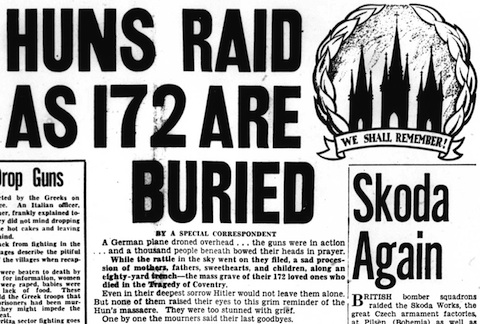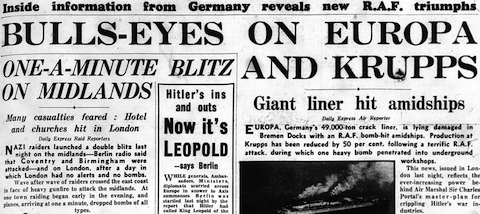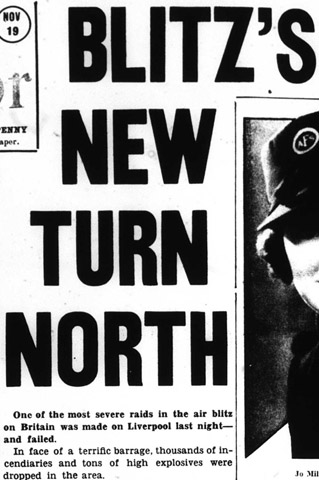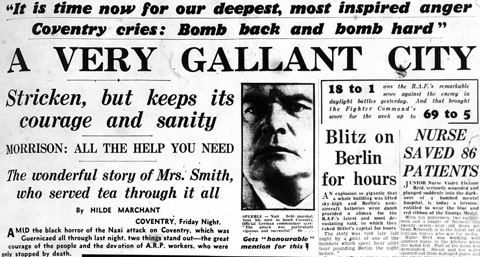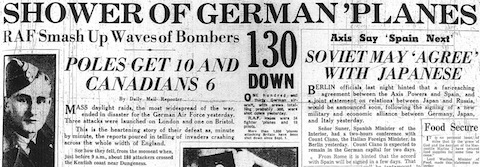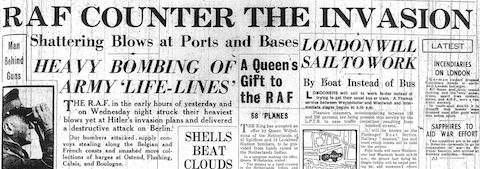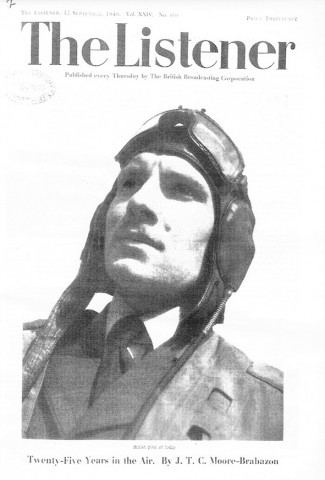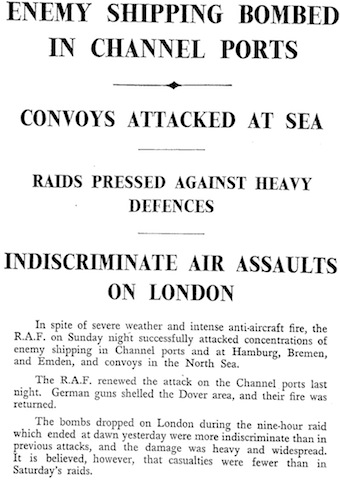Thursday, 21 November 1940
I was going to end this section of the post-blog with yesterday’s post, but who could resist a front page like this? It’s so emotive and manipulative. The scene itself is tragic enough: the mass burial and funeral of 172 men, women and children killed in the blitz on Coventry last Thursday night. Another seventy […]


